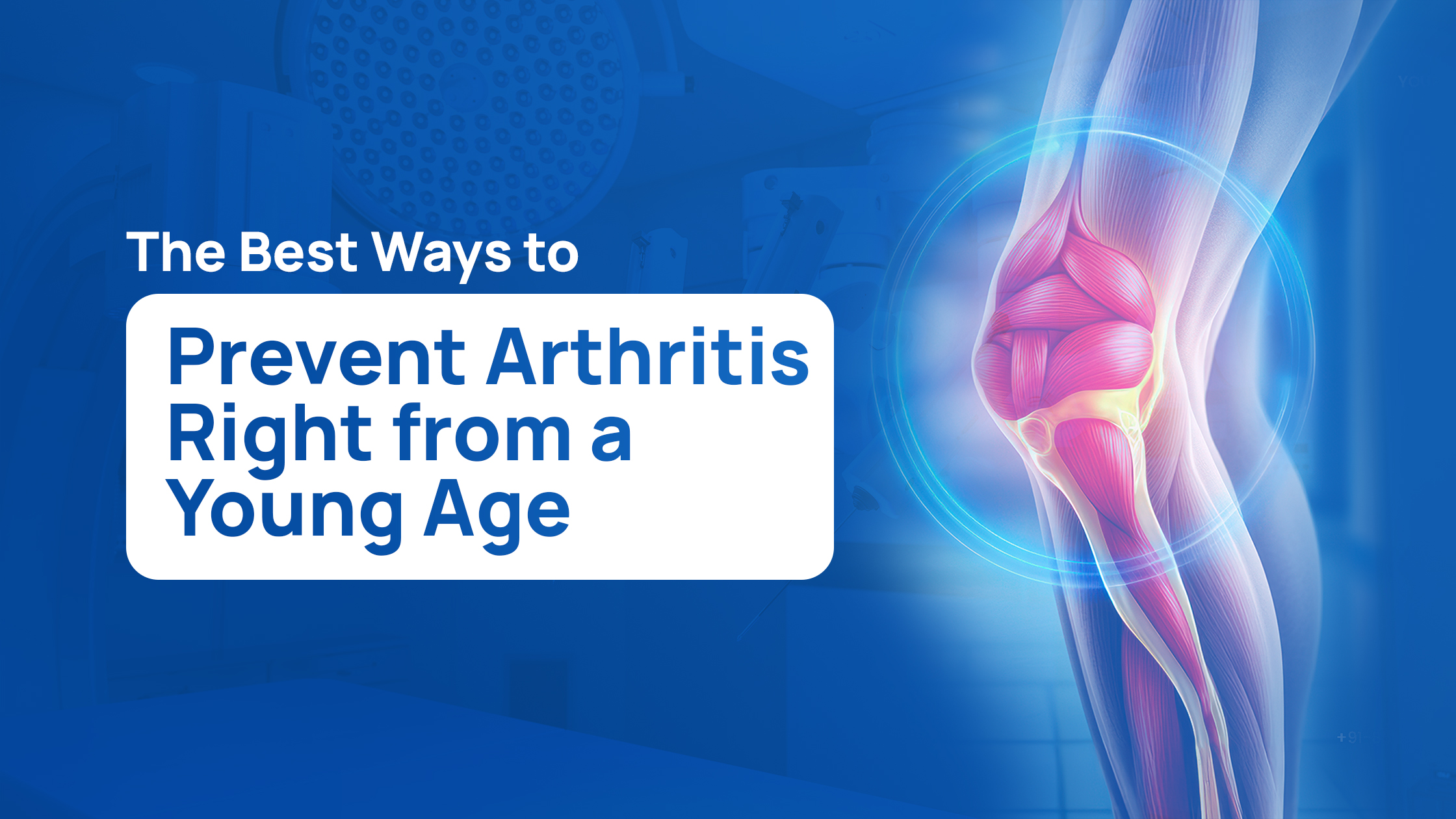
The Best Ways to Prevent Arthritis Right from a Young Age

Can arthritis really be prevented — or is it something that “just happens” with age?
This is a question I get very often from young adults who see their parents or grandparents suffering from joint pain and stiffness. The truth is — while we cannot completely prevent arthritis, we can delay its onset and drastically reduce its severity with the right habits early in life.
Arthritis doesn’t appear overnight. It develops silently over years of stress, neglect, and wear-and-tear. But just like you care for your heart, your joints too deserve lifelong care. Let me take you through some simple yet powerful ways to protect your joints and stay arthritis-free well into your senior years.
Understanding How Arthritis Starts
Before we talk about prevention, let’s understand what leads to joint degeneration in the first place. Most common forms — especially osteoarthritis — are caused by gradual cartilage breakdown. Cartilage is the smooth, cushion-like tissue that allows your joints to move without friction.Over time, repetitive strain, poor posture, obesity, injuries, or a sedentary lifestyle can damage this cartilage. Once it wears away, bones start rubbing against each other — causing pain, stiffness, and inflammation.
The good news is: these factors are largely preventable.
1. Stay Active — But Stay Smart
Movement is medicine for your joints.
- Engage in low-impact exercises like walking, swimming, cycling, or yoga. They improve flexibility and strengthen muscles around the joints.
- Avoid prolonged inactivity — sitting for hours stiffens your joints.
- Warm up before workouts and cool down after — this prevents micro-injuries that lead to long-term joint stress.
As I often tell my younger patients: Don’t just work out for your body — work out for your joints.
2. Maintain a Healthy Weight
Your knees bear up to four times your body weight when you walk. Even a small increase in weight puts enormous pressure on them.
- Maintaining an ideal BMI can delay the onset of arthritis by years.
- For those with existing mild arthritis, weight loss can reduce pain and improve mobility significantly.
Think of your joints as tires — the lighter the load, the longer they last.
3. Avoid Repetitive Strain and Poor Posture
Certain activities — like squatting, heavy lifting, or sitting cross-legged for long — put undue stress on joints.
- Correct your posture while sitting, standing, or working at a desk.
- Use ergonomic furniture if your job requires long hours of sitting.
- Take short breaks every 30–40 minutes to stretch and move around.
Small lifestyle changes today can prevent chronic pain tomorrow.
4. Strengthen Supporting Muscles
Strong muscles act as shock absorbers for your joints.
- Include resistance training and core strengthening in your routine.
- Focus on hip, thigh, and calf muscles — they support your knees.
- Balance training and flexibility exercises help prevent falls and injuries.
5. Eat for Joint Health
A balanced diet rich in anti-inflammatory foods can protect joint tissues.
- Add: Fish, olive oil, turmeric, nuts, seeds, leafy greens, and berries.
- Avoid: Processed foods, excessive sugar, and red meat — they increase inflammation.
- Stay hydrated — joint cartilage depends on adequate water content to remain lubricated.
What you eat in your 20s and 30s often decides how your joints feel in your 60s.
6. Prevent and Treat Injuries Early
One of the biggest triggers for early arthritis is untreated joint injuries.
If you twist your knee or strain your shoulder, don’t ignore it. Early intervention through rest, physiotherapy, or arthroscopic repair can prevent chronic damage later.
As someone who treats many post-traumatic arthritis cases, I can tell you — prevention is far easier than correction.
7. Go for Regular Check-Ups
Even if you have no symptoms, periodic joint evaluations help detect early wear and tear.
If you have a family history of arthritis, discuss preventive strategies with your orthopedic specialist. Early screening can help delay progression for years.
Conclusion
Arthritis is not just a disease of the elderly — it’s the result of years of choices we make. The earlier you start protecting your joints, the better your mobility and comfort will be in later life.
As I tell all my patients, “Your joints don’t have to age just because you do.”
Stay active, eat smart, maintain your weight, and take care of your body — and it will take care of you.
Because prevention isn’t just better than cure — it’s the secret to lifelong mobility.
